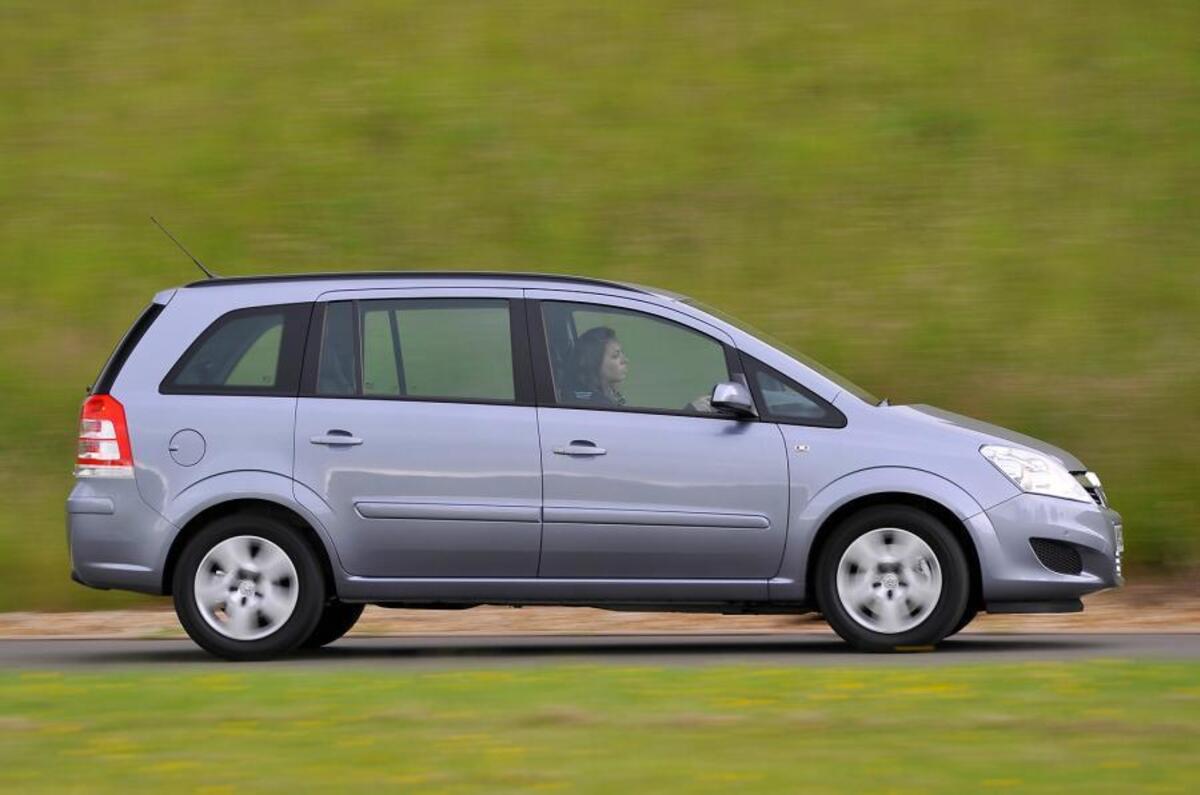Vauxhall showed a “reckless disregard for safety” over the Zafira fires in allowing owners to continue driving their cars after a fire risk was identified, according to a damning government report.
Parliament's Transport Select Committee described Vauxhall’s failure not to warn customers sooner as “morally reprehensible”.
The British car manufacturer was also deemed too slow to take action over the fires, which came to prominence in 2015, and was also too quick to blame garages for improper and unauthorised repair, said the report. It also alleged that no efforts were made to trace the poor repairs.
Vauxhall said there were “lessons to learned” from the Zafira fires.
Vauxhall sold more than 230,000 Zafira models with manual or no air conditioning between 2005 and 2014. The first report of a Zafira fire was noted by the car maker in 2009, Five years later, in 2014, concern was raised within Vauxhall that these fires had a distinctive pattern, but it wasn’t until August 2015 that Vauxhall started to investigate. At that time, 161 fires were logged.
Vauxhall’s first recall over the issue came in December 2015. In February 2016, it was made aware of the first fire in a recalled vehicle, but did not launch its second recall until May 2016.
The report heavily criticised Vauxhall in letting people continue to drive vehicles that had been recalled and returned to owners when it knew that the Zafiras could still catch fire, saying: "Vauxhall's decision to continue to let people drive affected cars amounts to a reckless disregard for safety. This is particularly damning given its admission that it should have notified customers earlier".
The report continued: "In the absence of any explanation for its tardy response from the witnesses that appeared before us we can only conclude that commercial considerations and the need to avoid reputational damage were put ahead of safety; this is unacceptable and morally reprehensible."
The debacle has also flagged the need for better processes across the industry to address the failings in the UK’s car recalls system.
The inquiry said that the Driver and Vehicle Standards Agency (DVSA) relied too heavily on manufacturers to report safety concerns and should instead encourage drivers and other areas of the industry, such as garages and insurers, to flag issues.
The Committee also advised that the DVSA should have more power to seize vehicles for fire investigations from unwilling manufacturers as well as being able to threaten prosecution if parties fail to comply with recalls.
Chair of the Transport Select Committee, Louise Ellman MP, said: "Vehicle fires are terrifying for their occupants and other road users. In this inquiry, we heard how one car manufacturer was too slow to acknowledge drivers’ concerns, too slow to begin an investigation, too slow to address the causes and too slow to alert drivers of real safety concerns. Drivers and their families were needlessly put at risk."
She added: “All car manufacturers should take heed of the recommendations in this report. The current voluntary approach to recalls is not robust enough. The DVSA must be given enforcement powers to compel manufacturers to act should it need to do so. This will ensure that drivers can have full confidence in the recall system.”




Join the debate
Add your comment
Prosecutions
We need real punishments to stop this sort of bad behaviour.
GM Customer Swerve-ice....
On its own the GM customer 'experience' must have lost them lots of sales....
I hope PSA can sort things out
What about other markets?
Not unusual for LHD and RHD cars to have different problems.
Older Fiats are well known for failing clutch cables on RHD as they are routed tight to the exhaust downpipes resulting in lubricant drying up and cables becoming stiff and snapping.
Older VW Polo's were notorious for spongy brakes in RHD form as the linkage wandered its way across the bulkhead to the RHD pedals from the LHD brake cylinder.